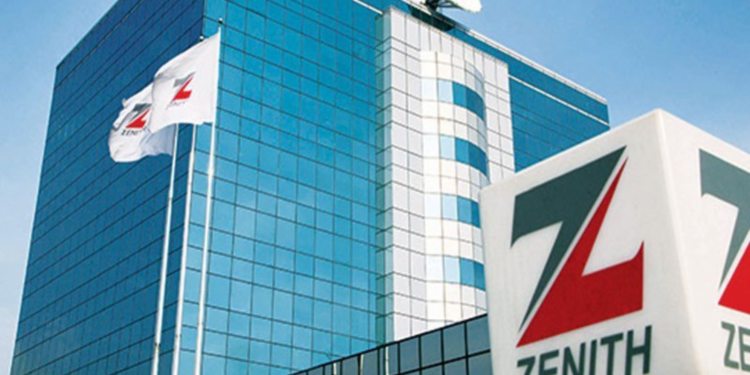Business
Access Holdings, UBA, GTCO lead in profit growth

Access Holdings Plc, United Bank for Africa (UBA) Plc, and Guaranty Trust Holding Company (GTCO) Plc are the three listed Nigerian banks that recorded the highest growth in after-tax profit last year, according to data compiled by BusinessDay.
According to the banks’ latest financial statements, Wema Bank Plc recorded 214.9 percent growth in after-tax profit, followed by FCMB Group Plc (207.1 percent), Zenith Bank Plc (202.3 percent), Fidelity Bank Plc (116.9 percent), Stanbic IBTC Holdings Plc (74.2 percent) and Sterling Financial Holdings Company Plc (11.4 percent). FBN Holdings recorded no growth during the period.
Further analysis of the statements revealed that the banks recorded a combined after-tax profit of N3.15 trillion in 2023, a 158 percent growth from N1.22 trillion in the previous year.
Analysis of individual banks
Zenith Bank
Zenith Bank’s after-tax profit grew by 202.3 percent to N676.9 billion in 2023 from N223.9 billion in 2022. The bank’s net interest income surged to N736.2 billion from N366.6 billion.
Net fee and commission income dropped to N109.3 billion from N132.8 billion. Other operating income grew to N242.6 billion from N35.5 billion. Earnings per share increased to N21.55 from N7.14.
Zenith Bank is engaged in the business of commercial banking. The bank is engaged in the provision of banking and other financial services to corporate and individual customers. Its services include the granting of loans and advances, corporate finance, and money market activities. Its segments include corporate, public, retail banking, pension custodial services Nominee-Nigeria, and outside Nigeria Banking-Africa and Europe.
Access Holdings
Access Holdings’ after-tax profit grew by 305 percent to N619.3 billion in 2023 from N152.9 billion in 2022. The group’s net interest income surged to N695.4 billion from N359.6 billion.
Net fee and commission income surged to N207.8 billion from N145.7 billion. Other operating income grew to N33.07 billion from N26.8 billion. Earnings per share increased to N17.23 from N4.46.
Access Holdings formerly (Access Bank Plc) is one of the leading financial institutions offering banking products and services for the retail, private, corporate, and institutional and non-institutional sectors in Africa and Europe. The company offers solutions for corporate and investment banking, commercial banking, personal banking, and business banking.
UBA
UBA recorded 257 percent growth in after-tax profit to N607.7 billion in 2023 from N170.3 billion in 2022. The bank’s net interest income surged to N707.5 billion from N379.5 billion.
Net fee and commission income increased to N189.1 billion from N127.9 billion. Other operating income surged to N33.5 billion from N13.04 billion. Earnings per share grew to N17.49 from N4.84.
UBA is a financial services institution in Nigeria offering banking products and services to the personal, commercial, and corporate sectors. The company provides a full-service product offering ranging from transactional accounts, overdrafts, and mortgage finance to domiciliary deposits, treasury services, asset management services, bonds, money market deposits, and risk management solutions.
GTCO
GTCO recorded 219 percent growth in after-tax profit to N539.7 billion in 2023 from N169.2 billion in 2022. The group’s net interest income surged to N436.7 billion from N25.3 billion.
Net fee and commission income grew to N109.4 billion from N91.99 billion. Other income surged to N449.3 billion from N68.4 billion. Earnings per share increased to N19.07 from N5.95.
It is one of the leading financial services institutions in Nigeria with business operations in Cote D’Ivoire, Gambia, Ghana, Liberia, Kenya, Rwanda, Uganda, Sierra Leone, Tanzania, and the United Kingdom. The company provides banking products and services for the retail, commercial, and corporate banking sectors.
FBN Holdings
FBN Holdings recorded zero percent growth in after-tax profit to N309.9 billion in 2023 from N310 billion in 2022. Its net interest income surged to N530 billion from N363.2 billion.
Net fee and commission income grew to N171.8 billion from N117.9 billion. Other income dropped to N16.5 billion from N22.4 billion. Earnings per share increased to N8.56 from N3.74.
The group is a financial services institution in Nigeria offering banking products and services for the commercial, corporate, investment, and merchant banking sectors.




![Anxiety as Arik Aircraft Engine Explodes Mid-Air [PHOTO]](https://thepapers.ng/wp-content/uploads/2026/01/breaking-news-80x80.jpg)







